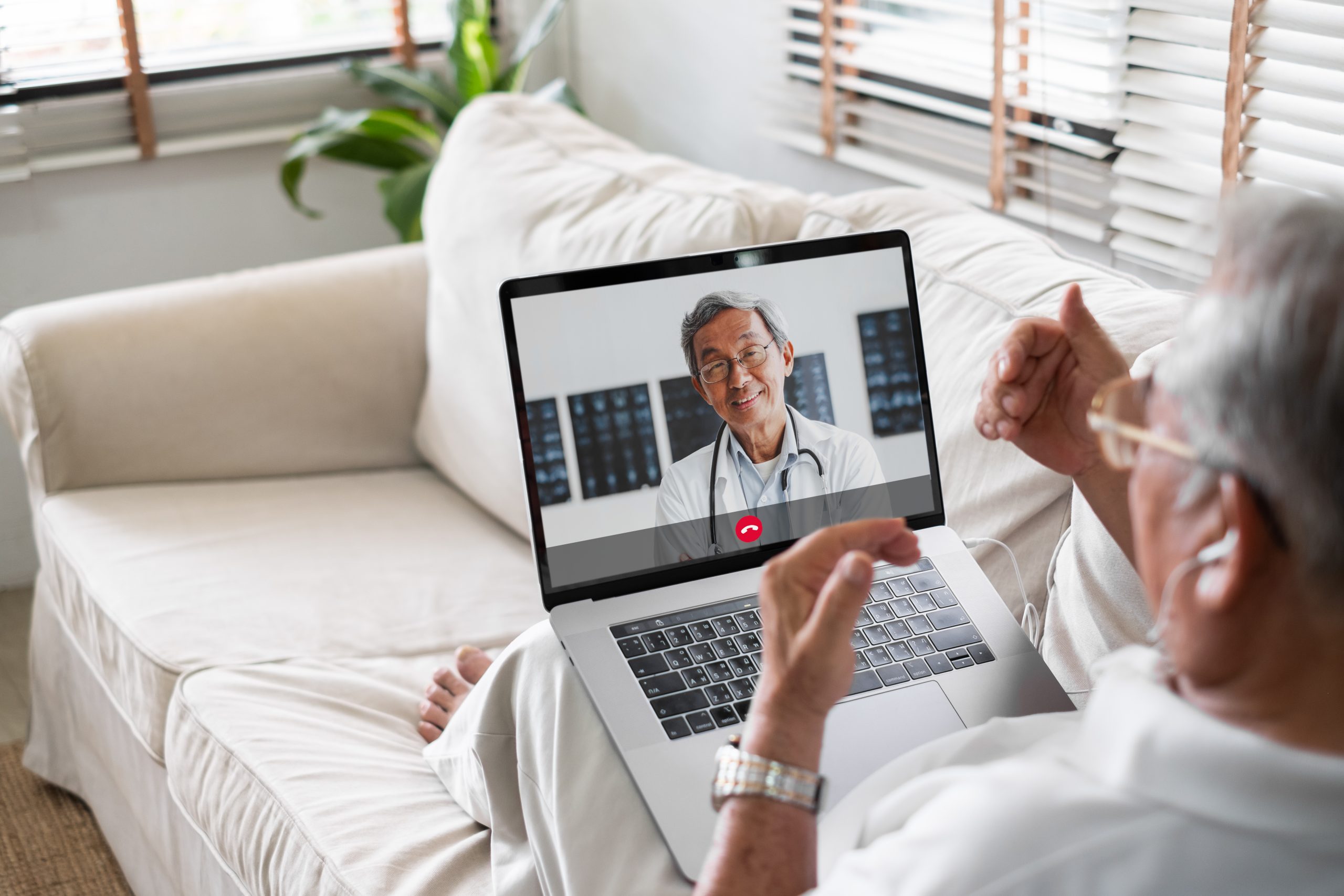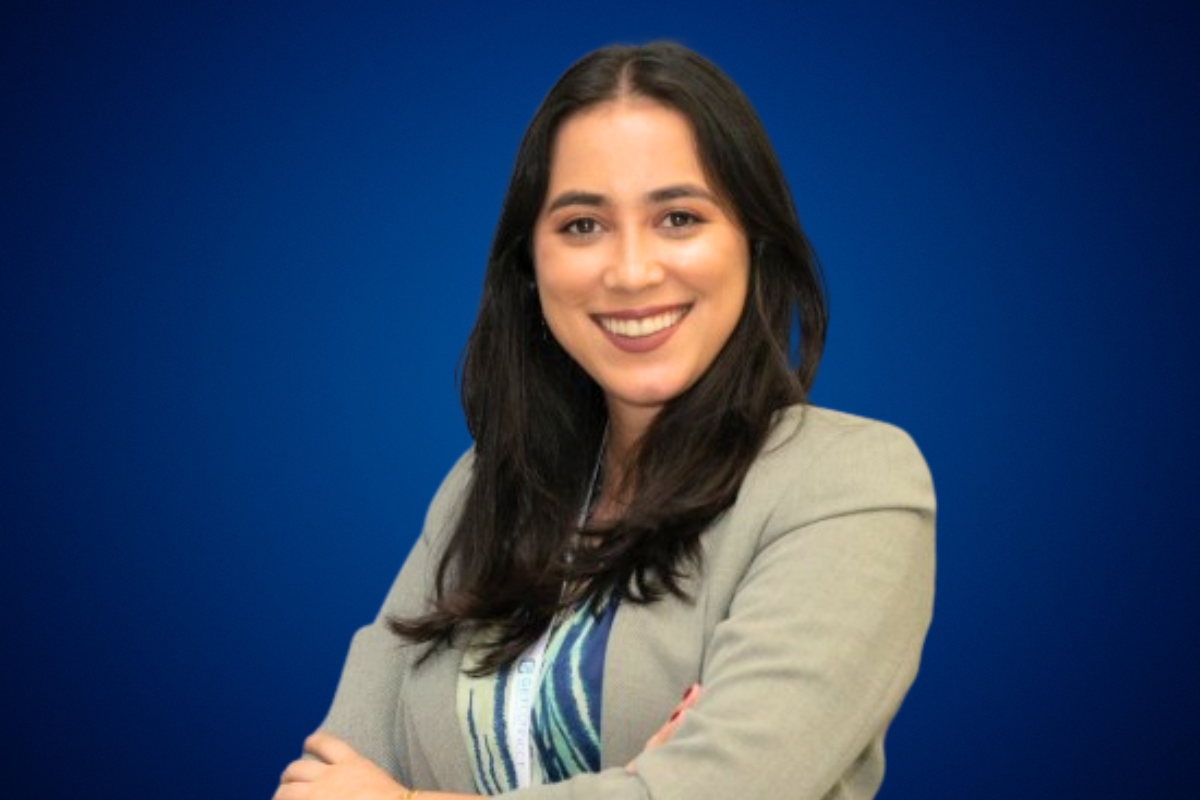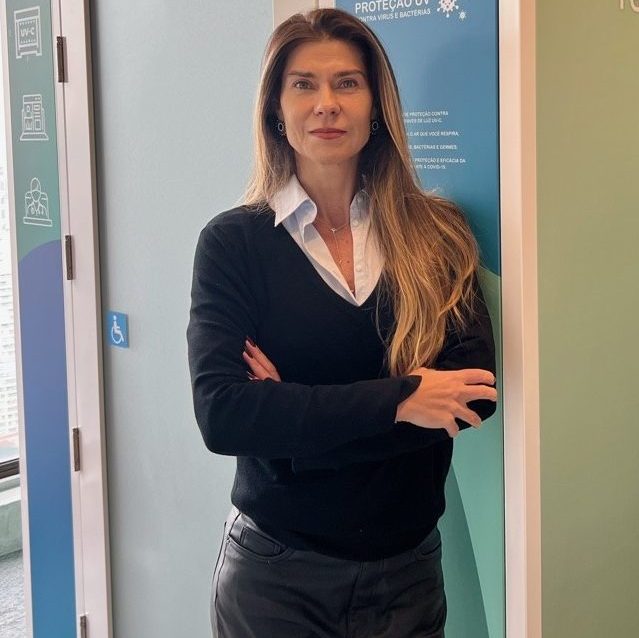Telemedicine was approved in 2020 on an emergency and temporary basis. Definitive regulation is necessary, but is still under debate.
With the arrival of Covid-19 in Brazil, telemedicine was regulated on an emergency and temporary basis. Law 13,989 of 2020 defines that this remote consultation tool is permitted while the pandemic lasts. However, despite the advances on the subject in the National Congress, there is still no definitive release. Doctors and organizations fear that there will be no actual regulation before the end of the pandemic. Added to this is the risk that the Ministry of Health will downgrade the status of the health crisis to endemic, which could cause setbacks in the area.
Telemedicine has proven to be essential during this period of social isolation. With the ease of internet access for a large part of the population and the popularization of smartphones, more than 10.2 million consultations were carried out, according to a survey by Saúde Digital Brasil, one of the main entities in the sector.
Currently, several fronts are working to make this happen soon. Bill 1998/2020, by Congresswoman Adriana Ventura (NOVO), and 4223/2021 by Senator Esperidião Amin (PP), are among the most advanced. However, there are discussions taking place to impose some rules on telemedicine, such as the need for the first consultation to be carried out in person, as advocated by the Federal Council of Medicine.
“If doctors and society as a whole defend medical autonomy, it is up to the CFM to establish the limits of this autonomy, aiming at patient safety and the best medical practice. We understand that any legislative text should have this connotation, but the Council’s view is that there must be regulation”, says Donizetti Giamberardino Filho, CFM advisor and coordinator of the Special Commission that studies the review of Telemedicine.
However, experts interviewed by Futuro da Saúde are against the idea that the first consultation must be in person, with the patient and doctor being responsible for deciding and evaluating when a visit to the office is necessary.
Needs to move forward
For Caio Soares, president of Saúde Digital Brasil, although definitive regulation is necessary, it must guarantee the first consultation via telemedicine and care throughout the Brazilian territory. Unlike in-person care, in which the doctor can only perform it in his or her state of registration, with the possibility of a secondary registration in a maximum of one more state, telemedicine consultations are not limited to regional care.
One factor that contributes to this situation being resolved is the inequality in the distribution of doctors. The study Medical Demography in Brazil 2020, conducted by the Faculty of Medicine of the University of São Paulo (USP), indicates that in Brazilian capitals there are 5.65 doctors per thousand inhabitants, a much higher number than in the interior, which has 1.49 doctors per thousand inhabitants. The country has around 293 thousand specialist doctors., but these are also concentrated mainly in the capitals. Regional issues are also observed. The Northeast has 1.25 specialists for each generalist, while in the Federal District this number is 2.52 and in the South it is 2.07.
According to Soares, the Federal Council of Medicine has already indicated that this issue will be resolved with registration on a platform that authorizes care throughout Brazil. “Our main fight and cause is for the first consultation to be permitted and authorized by the new regulations, which is what full telemedicine is. That is what we did during the pandemic and that is what we need after it. It is the same all over the world,” he argues.
“Limiting the first telemedicine consultation for the population is a huge disservice. It goes against what the population needs, against what the population asks for, and against us solving one of the biggest bottlenecks of the SUS, which is the first consultation. If we have this tool, it is working, everyone has used it, liked it and benefits from it, going back or limiting this is a huge disservice.”
Pay close attention to the quality
Among the negative aspects seen by the association in the use of teleconsultations during these two years of pandemic is what they call “medical certificate abusers”. These are patients who, without real need, schedule appointments to obtain a certificate that guarantees their absence from work. “They found another way to obtain certificates in telemedicine. If we do not have a close eye and a single medical record to look at previous appointments, if we are not a robust company with a structured database and information system that can allow this analysis, we are subject to abusers. Like all technology, it has its benefits and its drawbacks”, says Soares.
Furthermore, it is necessary to establish minimum quality standards. Today, doctors must conduct consultations using applications and programs that guarantee patient safety and privacy, following the rules of the General Data Protection Law, and that have an attached electronic medical record. Saúde Digital Brasil is preparing a manual of good practices for healthcare professionals for April of this year, with chapters focused on information security, interoperability, clinical protocols and technology standards.
Soares, however, emphasizes that in addition to regulating medical boards, society and patients need to actively monitor the quality of the service. “It’s like a doctor’s office. If you go to a doctor’s office and the doctor treats you with quality standards that don’t match what you expect, you turn your back and leave. The same thing happens with remote care. You open the screen and things aren’t as you imagined, bye-bye. You close the screen and the consultation is over. The doctor and the patient need to have autonomy to know how far they can go during a medical consultation,” he warns.
Lessons learned from the pandemic
“The pandemic accelerated not only the development but also the use of telemedicine. Practically everyone started using telemedicine as a tool to access the healthcare system. This made us realize how easy, safe and accessible this tool has become. There was a lot of resistance from doctors because they thought it was not safe and easy to use, but its widespread use during the pandemic changed this perception,” says the president of Saúde Digital Brasil.
Half of the country's doctors already use telemedicine, according to a survey by the São Paulo Medical Association (APM) and the Brazilian Medical Association (AMB), including teleconsultations, teleguidance, telemonitoring and teleconsultation. The tool was important for treating patients with suspected or mild cases of Covid-19, preventing them from having unnecessary contact with other people. However, 42.31% of doctors indicate that they treat new and old patients with other complaints not related to the coronavirus.
“The note that patients “The cost of teleconsultations is higher than that of in-person consultations. This is a source of great pride, because they are realizing that the quality is better than in-person consultations, especially in the first consultation. And the access time. When you think that you need to talk to the doctor, that you will leave your house, go to the emergency room, go to the office and schedule the appointment, it eventually takes two days, on average [in person], compared to three minutes in telemedicine consultations. The gain is huge”, compares Soares.
A survey by Conexa Saúde, a telemedicine platform, in partnership with Datafolha, indicates that 771% of respondents consider telemedicine to be practical and 731% of people who have already received care in this way say they would return to video consultations. The survey was conducted between November and December 2020, the first year telemedicine was in operation in the country.
Elections can get in the way
Although Bill 1998/2020, proposed by Congresswoman Adriana Ventura (NOVO), is being processed in the Chamber of Deputies as an urgent matter, the voting period has already expired and it could go to the plenary at any time – or not at all. A 2018 survey by Folha de São Paulo showed that in that year, more than 1,000 bills were being processed as an urgent matter, with the oldest proposed in 1989. There is also concern that 2022 will be an election year, since 27 senators and 513 deputies will be elected to Congress.
“This will mean that the processes that are being voted on will end up being those that are a priority. So we don’t know if things will move forward before October. We are betting on it, there is a whole movement in civil society, representatives of several medical associations and health institutions, who are trying to influence Congress to speed up this vote,” says Jefferson Fernandes, president of the Board of Trustees of the Global Summit Telemedicine & Digital Health, an event organized by the Associação Paulista de Medicina (APM) about good practices and trends in the sector.
Privacy and security
To ensure patient privacy, healthcare professionals are advised not to use social media and messaging apps, such as WhatsApp, as teleconsultation tools. “Health data is sensitive. Putting this information on these platforms is a huge risk. There is no privacy protection. What is done with this data? These tools are certainly good for messaging, but not for teleconsultations. Records must be kept in a medical record, whether electronic or on paper. What if the cell phone is lost? We see the weakness of using them as teleconsultation tools,” says Jefferson.
Jefferson believes that the lack of preparation was one of the negative aspects that deserves attention. In addition to taking care of the platform, it is recommended that healthcare professionals undergo specialization so that they can adapt to the new tool, without losing the proximity to the patient on the other end of the call. Since April 2020, the second month of the pandemic in Brazil, APM has been offering online courses focused on telemedicine, which involve not only the relationship with patients, but also management, legal, and safety issues. “People started working without any training, although we didn’t have many options [due to the pandemic]. If we had teleconsultations before, we would be at a different level of maturity,” he explains.
In addition to professional certification, healthcare accreditation can help institutions recognize their good processes, systematizing them and giving them greater credibility. “This will be essential. The technology being used has the necessary features, the people are trained, there is concern about feedback and satisfaction surveys, and there is auditing. All of this has only one thing to offer: the qualification of this service,” says Fernandes.
Accreditation
Accreditation is a common process in the healthcare sector. A company or entity with no connection to an institution recognizes that the services provided follow safety and quality protocols. In Brazil, only about 31 TP3T in the sector have certifications in this regard. In Canada, where this movement began, 1001 TP3T in healthcare units have certifications. “Accreditation is always possible where the focus is on the patient, where the patient is the most important thing,” points out Rubens Covello, founding partner and CEO of QGA – Quality Global Alliance.
In the case of telemedicine, the resource confirms to the user that the service provided has undergone an independent evaluation and achieved a satisfactory rating. QGA is one of the companies operating in Brazil carrying out this accreditation and has developed a process that evaluates the main points, together with other organizations around the world where telemedicine already occurs, following the LGPD standards.
“There needs to be good engagement between the patient and the doctor, and the doctor needs to have a clear understanding of how he or she should provide care to the patient – based on protocols and scientific evidence. The patient needs to know exactly what the doctor’s responsibility is,” explains Covello.
The CEO of QGA endorses the use of telemedicine in the country, but emphasizes that it is necessary to maintain quality, avoiding the use of platforms that are not intended for this purpose to provide care. “Our biggest concern is seeing services that are not at all safe when treating patients. Accreditation is almost mandatory for those who practice telemedicine in a serious and safe manner. Services will eventually move towards this design,” he argues.
Text taken from Future of Health





